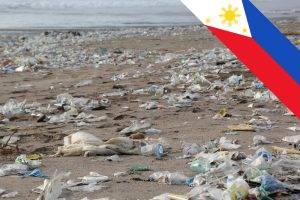Amidst rising concerns regarding the increased usage of disposable vapes, the Department of Health (DOH) has thrown its support behind Finance Secretary Ralph Recto’s proposal. Sec. Ralph’s proposal talks about prohibiting single-use electronic smoking devices.
In a statement, the DOH emphasised the critical necessity for a comprehensive ban on all vape products. They also cited its detrimental impact on both public health and the environment.
Health Risks and Environmental Impact
Disposable vapes and vapour products, according to the DOH, pose substantial health risks. This includes the potential for e-cigarette or vapour product-associated lung injury (EVALI), nicotine addiction, and a spectrum of respiratory and cardiovascular diseases. These disposable vapes, designed for one-time use and non-rechargeable, are typically sold pre-filled with e-liquid, often containing high levels of nicotine. These devices, constructed with plastic components and non-biodegradable batteries, contribute significantly to electronic waste (e-waste), heightening environmental degradation. In addition, the harmful chemicals in disposable vapes can leach into soil and water sources. This poses long-term risks to ecological integrity and public health.
Regulatory Concerns and Underage Access
Finance Secretary Ralph Recto has raised critical concerns regarding the regulatory oversight of disposable vape products. He highlighted the prevalence of unregistered products that evade excise taxes. Moreover, there is growing apprehension surrounding the accessibility of disposable vapes to minors, with marketing strategies often targeting underage individuals. The absence of strict regulations and enforcement measures has facilitated the expansion of these products, worsening their impact on vulnerable demographics and public health outcomes.
Call for Comprehensive Action
Given the mounting health risks and environmental hazards associated with disposable vapes, the DOH advocates for a comprehensive ban on all vape products. Such measures are essential to safeguard public health and mitigate ecological degradation from e-waste. Additionally, comprehensive bans align with broader efforts to promote tobacco control and environmental sustainability. This signals a collective commitment to prioritise the well-being of communities and ecosystems.
Promoting Alternatives and Long-Term Solutions
In addition to advocating for a ban, the DOH emphasises the importance of promoting smoking cessation programs and providing support for individuals seeking to quit vaping. Education campaigns are instrumental in raising awareness and fostering behavioural change. It can cover the risks associated with vaping and the benefits of cessation. Furthermore, investments in research and development of safer alternatives to traditional cigarettes and vapes can contribute to long-term solutions for tobacco addiction and environmental sustainability.
Stakeholder Collaboration and Public Engagement
The DOH stresses the importance of collaborative efforts involving government agencies, civil society organisations, and the private sector in addressing the vaping epidemic. Public engagement and awareness-raising initiatives are crucial in garnering support for regulatory measures and promoting healthier lifestyles. Moreover, partnerships with industry stakeholders can facilitate the development and adoption of responsible practices. This can ensure that public health and environmental concerns are adequately addressed.
Upholding Health and Environmental Protection
As the discourse surrounding disposable vapes intensifies, the DOH’s endorsement of a comprehensive ban underscores the gravity of the situation. Addressing the dual challenges of public health and environmental sustainability necessitates decisive action and collaborative efforts across various sectors. The Philippines can mitigate the adverse effects of disposable vapes, safeguarding human health and ecological integrity. It can be done explicitly by implementing stringent regulations, investing in public health initiatives, and promoting sustainable alternatives. In forging a path toward a vape-free and environmentally sustainable future, proactive measures are imperative to protect present and future generations from the perils of tobacco addiction and environmental degradation.














